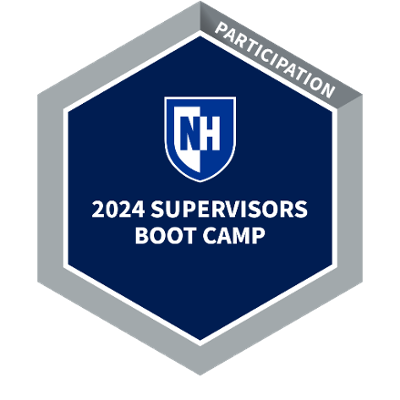Amy Cann: Introduction to labor law
The Introduction to Labor Law for New Managers program is designed to provide an understanding of labor laws and regulations to individuals stepping into managerial roles within organizations. This course aims to equip new managers with the ability to identify and navigate these complexities effectively.
Throughout the program, participants will explore key concepts, principles, and statutes that govern the workplace, including but not limited to:
- Understanding laws and regulations related to discrimination, harassment, and retaliation in the workplace with a review of current case studies.
- Examining the Fair Labor Standards Act (FLSA) and its implications for minimum wage, overtime pay, misclassification of exempt workers, and child labor.
- Introduction to the National Labor Relations Act (NLRA) and unfair labor practices that affect union and nonunion workplaces.
- Understanding employee rights regarding accommodation under the ADA, Pregnant Workers Fairness Act (PWFA), and Title VII related to religion.
- Modern considerations around the use of AI, background checks, and future legal trends.
Participants will gain an understanding of how to navigate the complexities of labor law, mitigate legal risks, and foster positive employer-employee relationships within their organizations.
James T. McKim, Jr., PMP, ITIL: DEI Foundations for New Supervisors
Abstract: We hear and use terms like “diversity”, “equity”, and “inclusion” quite frequently. But most people never stop to understand what those terms really mean. Discover the key concepts of diversity, equity, and inclusion (DEI) that are the foundation for improving individual and organizational performance. Discover why individuals unintentionally discriminate (“isms”), how discrimination manifests in interpersonal relationships, and why it is beneficial to include diverse people and thoughts in your daily life.
Learning Objectives
By the end of this session you will be able to:
- Describe what diversity, equity, and inclusion mean
- Describe the difference between race and ethnicity/culture
- Describe why diversity is nothing without equity and inclusion
- Begin to analyze the “welcomeness” of your workplace for diverse employees.
Gerri King, PH.D.: Challenges Facing New Supervisors
Employees are promoted because they’re good at their jobs. Being in a leadership position is an entirely different job for which practically no one is trained. Supervising former peers, confidence taking on the role, and resolving conflicts are just a few of the issues facing newly promoted professionals. This session will address a myriad of concerns and offer choices for how to handle them.
This session will address:
- Adjusting to a new role
- Supervising former peers
- Resolving conflicts
- Challenges you raise
Krystal Hicks, Founder, JOBTALK,LLC: How to manage and retain multi-generational teams leveraging transparency, empathy, and strategy.
There has never been a time when middle managers have had more on their plate than right now. Not only do people require more from leadership to feel connected and seen at work, but the systems and work environments required to be productive are constantly changing, requiring managers to quickly pivot and adapt. All of these factors mean that NEW managers have to bring new tools to the table if they want to inspire, develop, and ultimately retain their people.
In this workshop, new managers will:
- Learn how to celebrate their people's wins in the most authentic way possible.
- Gain insight/language on how to drive their employees' development using a growth model that incentivizes them.
- Improve their comfort level in managing multi-generational teams (where even people in the same role may require very different types of leadership, communication, support, boundaries, etc.).
- Take away best practices for succession planning and employee performance improvement/development conversations.

 Participants who attend the 2024 Supervisors Boot Camp will automatically receive a digital badge microcredential that verifies their accomplishment and skill that can be shared on social media, blogs and online portfolios.
Participants who attend the 2024 Supervisors Boot Camp will automatically receive a digital badge microcredential that verifies their accomplishment and skill that can be shared on social media, blogs and online portfolios. 


